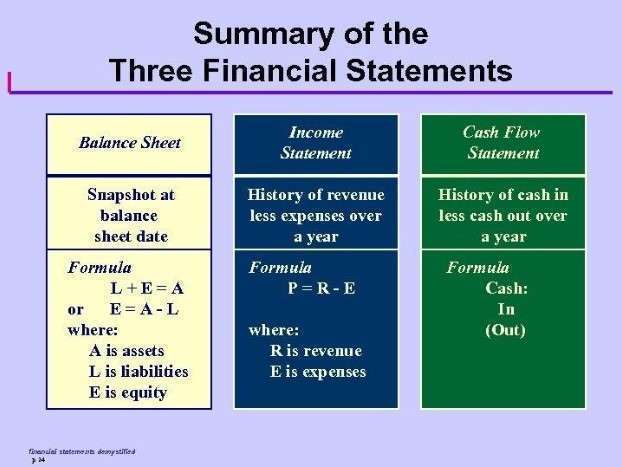Content

Then, once your company is more established, you’ll be able to hire a professional to take your finances to the next level. Many small businesses face scenarios where they need to seek external business financing to maintain their operations. For instance, you might want to raise capital to invest in new inventory, hiring, product developments, and more. Meals and entertainment.It’s https://www.bookstime.com/ possible to count business meals as “expenses,” but everything must be well-documented, with details on who attended the meeting. Sage 300 CRE Most widely-used construction management software in the industry. Sage 100 Contractor Accounting, project management, estimating, and service management. Accounting Native-cloud accouting software for small business.

All the accounting services reviewed here come with default settings that you may need to change. For example, do you plan to use specific features such as purchase orders and inventory tracking? You can usually turn tools on or off, which can help you either simplify the user interface or maximize the functions available to you. We recommend FreshBooks especially for sole proprietors and companies with perhaps an employee or two—though it’s capable of handling more. Very small businesses could use it for basic money management, like sending invoices, monitoring financial accounts, accepting payments, and tracking income and expenses.
What is small business accounting?
The balances of the debit and credit columns should be equal. The general ledger is a collection of accounts that display the changes made to each account based on past transactions, along with the current balances in each account. Before you sign off on the debt, it’s important to calculate the ROI of the loan.

Good bookkeeping gives you solid, up-to-date material to build insightful reports. Good bookkeeping preps your business for scrutiny, whether you get assessed in an audit, sized up for a loan, or when trying to attract investors.
Make sure your transactions are categorized
Now that you’ve chosen and set up your system, it’s time to create processes. You have a robust Chart of Accounts, something that would impress any accountant. You can sort your Chart of Accounts by any header you choose. The typical view, however, is to group records by category (sometimes called “codes”). Are likely to leave you overwhelmed amid the other management tasks that you have to do without a true high-level understanding of what’s important or trending in your business over time. The good news is that when you learn how to keep books for small business, it makes important decisions easier and minimizes preventable financial mistakes. The concept is similar to what money experts often recommend when it comes to saving money—take some money directly from your income, instead of taking from what is leftover.
- If you’re searching for accounting software that’s user-friendly, full of smart features, and scales with your business, Quickbooks is a great option.
- If you decide to hire employees, know that you’ll be on the hook for more than just their wages.
- From financial accounting to tax compliance, ProfitBooks makes everything easy for your business.
- If you go this route, there’s a good chance you’ll overlook vital business transactions.
Businesses consider receipts from sales of goods, bank account interest, payments made to vendors, and wages paid to employees as operating activities. Assets have economic value and can reduce expenses and improve sales. Examples of assets include real estate, inventory, cash, and accounts receivable. Balance sheets list assets in order of liquidity — how easily they can be sold, consumed, or turned into cash. Learn how to control your cash flow, audit-proof your business, and increase your profits. This guide provides a fast, efficient path to understanding in a self-paced learning environment. Each foundational accounting principle is supplemented by extensive examples.
Run your business & understand accounting
Establish your company as a distinct legal entity, such as an S corporation or LLC. Open a business checking account as your financial hub, and pay yourself a salary from it each month. Get a business credit card for expenses you can’t or don’t want to pay cash for, and open a business savings account as a rainy day or investment fund. Professional bookkeepers also provide other services, like helping with financial reports (profit-and-loss, balance sheet, cash flow report), and measuring business performance. Reconciliation involves regularly cross-referencing your business books against your bank statements to check that the transactions and balances match – and identifying the reasons if they don’t.
- You might still consider consulting with a CPA or bookkeeper at the beginning, just to make sure you’re doing everything right.
- You can also match related transactions, such as an invoice that was entered into the system and a corresponding payment that came through.
- It’s one of the cleanest, most understandable business services available.
- Plus, they’re available for questions during regular business hours.
- We also recommend it to small businesses, growing businesses, and established businesses that want its customizability, depth, and usability.
- When you leave a comment on this article, please note that if approved, it will be publicly available and visible at the bottom of the article on this blog.
They’re managerial level professionals who design and supervise the processes for recording a company’s finances. Plus, they confirm that all data is accurate, on an accrual basis, and submitted in a timely, efficient manner.
Take the confusion out of bookkeeping
If you are unsure, weigh the initial costs against what a firm can save your company over time. Accountants calculate net income by subtracting a business’s expenses from its revenue. If revenue is higher than expenses, the business gains net profit. If revenue is lower than expenses, the business experiences a net loss. Companies typically prepare balance sheets at the end of every quarter, but individuals can prepare them at any time. Assets, liabilities, and shareholders’ equity comprise a balance sheet. As you review your accounting strategy, consider your company’s financial goals.
This is an area of your finances that can easily get out of control if it’s not monitored. So, small business accounting software small business bookkeeping separates them into expense types. Then the software compares them to your income using totals and colorful charts.

